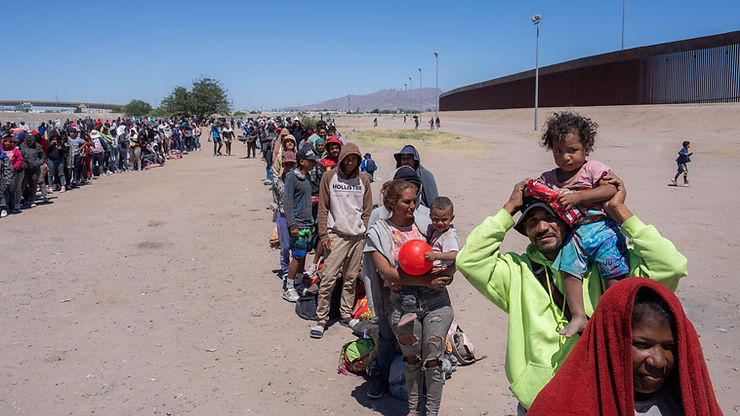By: Nathan Geng
Johnson Coronel hopes that Albany, New York, will be his permanent home. He is 26 years old and, along with his brother, left Venezuela in hopes of escaping government violence.
They requested protection at the Texas border and lived in two shelters in Texas, namely Brownsville and San Antonio. They also stayed with a relative in Boston for four days, but when there was no more room, they ended up in a New York shelter. Coronel mentioned that the shelter in New York had 12 people per room. When officials informed them that Albany was less crowded, they decided to go there.
“It’s a very unstable situation,” says Coronel. “But living in Venezuela has become impossible. You can’t walk down the street without a government official extorting money from you every few blocks. We just want to work and live in peace.”
New York City has received over 60,000 immigrants and asylum seekers in the past year or so, which overwhelmed the officials, leading them to send immigrants to nearby communities. However, many people in those communities have expressed hostility towards these immigrants.
“In these non-sanctuary cities, people are living in constant fear of being deported,” says Micky Jimenez, director of the non-profit Capitol District Latinos. “If they work there, they go to work and return home. They are very fearful.”
Many individuals from these communities are genuinely angered by the influx of immigrants. Elfren Rojas, a mechanic, mentions that he is not opposed to immigrants moving in but is concerned about the associated costs. He believes that the current state of the United States economy is not great.
“We can’t afford it,” he says. “We have too many U.S. citizens, war veterans, and others who desperately need help.”
Despite this, people throughout the state of New York have made efforts to assist the immigrants. They have provided support through food pantries, English classes, and clothing donations.
“We need funding. It’s becoming increasingly difficult to sustain the level of services we are currently providing,” Jimenez says. “We are fortunate to have incredible volunteers, but even they are growing tired.”
For now, Coronel finds himself in a challenging situation once again. He has no income or home and is living in a shelter, in a city where it is evident that many people do not welcome immigrants like him.
“We are exhausted,” Coronel says. “One day we are here, the next day we are there. It’s time to say, ‘This is it. We are staying here. This is home.'”











